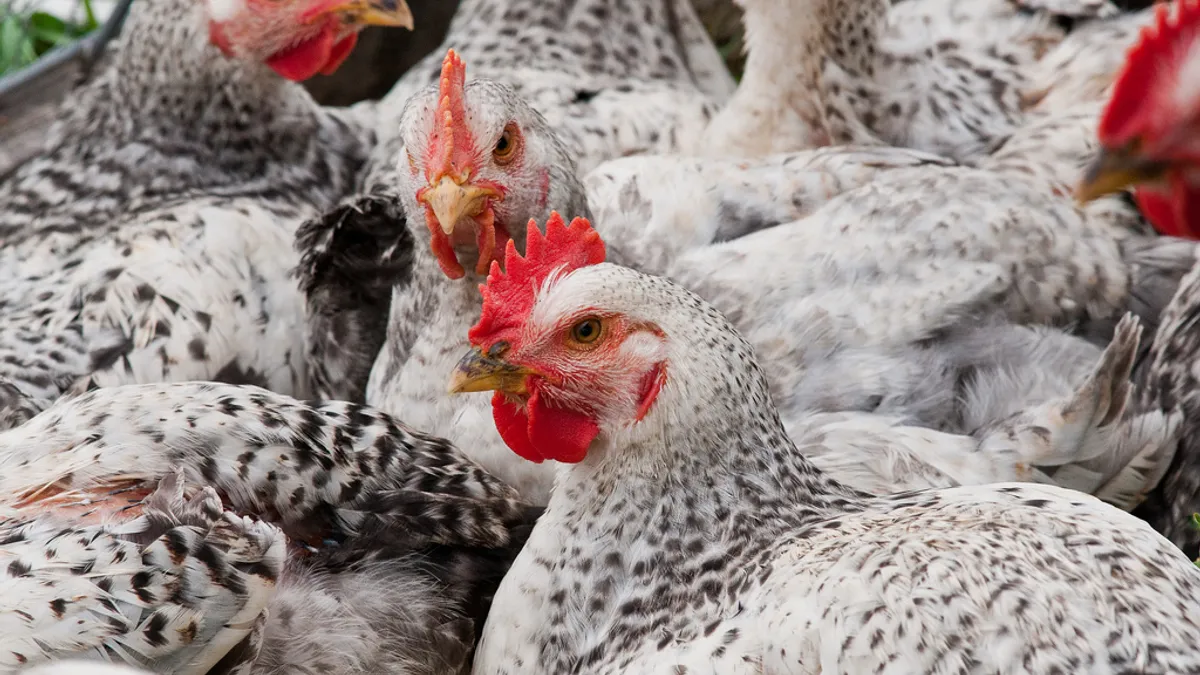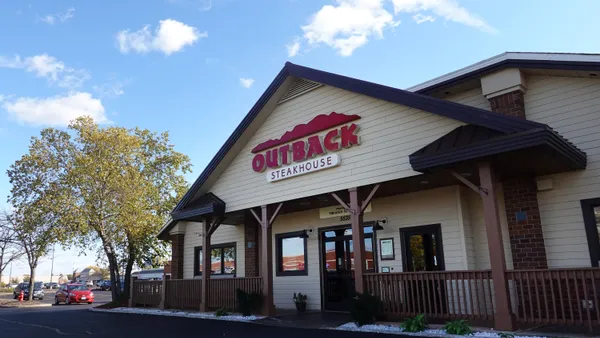Dive Brief:
- A World Animal Protection report gave Domino's North America a failing grade based on its chicken welfare policies, targets and progress reporting. This division of the pizza company scored zero on all three of the organization's benchmarks, with Domino's Europe & U.K. also receiving a failing score for having no targets, "weak" chicken welfare and "very limited" data reporting its progress.
- Burger King, Starbucks, Subway received "poor" ratings from the WAP report, while McDonald's, KFC, Pizza Hut and Nando's received "very poor" grades.
- Of the nine chains that were rated, only Starbucks, Burger King and Subway have made strides to improve chicken welfare, according to WAP.
Dive Insight:
The pressure to improve animal agriculture practices has been placed mainly on chicken and burger chains, but this report may light a fire under companies like Domino's to overhaul their own animal treatment standards. The pizza company has spoken out against animal rights groups in the past, with spokesman Tim McIntyre calling them "extremists" and stating that the best response to these activists is "to not hear them, to not respond, to not give them a platform."
“We will never tell a farmer how to farm. We will never tell a rancher how to raise his or her animals,” McIntyre told Brownfield Ag News.
But animal agriculture practices are increasingly top of mind for mainstream diners, and brands that don't adapt could be viewed as antiquated and out of touch. Major brands across categories have begun to change gears in the past few years — Starbucks, which began buying cage-free eggs in 2008, hopes to use 100% cage-free eggs in company stores by next year, for example. The coffee chain has also pledged to phase out cages for poultry and gestation crates for pigs.
In 2017, McDonald's announced it would source poultry raised in better living conditions, a move that would impact more than 70% of its global chicken supply. The initiative is expected to be executed in the next five years. Last spring, the burger giant further cemented its commitment to improved chicken welfare by forming the Chicken Sustainability Advisory Council. The body was created to gather advisors — including suppliers and genetics experts — who can help the company grow its chicken business sustainably.
Chains such as Chick-fil-A and Wendy's have also turned a spotlight on their chicken standards, with dedicated pages on their websites detailing their brands' unique policies, a feature that has become an industry standard. And since consumer love of transparency and chicken shows no sign of slowing down — the average U.S. consumer ate nearly 92 pounds of poultry in 2017, according to the U.S. Department of Agriculture — the faster restaurants improve their sourcing policies, the better.
But companies should review more than just their poultry practices to cater to conscious consumers. Meat raised with antibiotics is a growing concern for diners, with 60% of Americans reporting they would pay more for an antibiotic-free burger, and almost 80% think producers should stop giving antibiotics to healthy animals, per a Consumer Reports survey.
These metrics suggest that companies like Domino's will have to change their policies to remain competitive. In the food world, for example, antibiotic stalwart Sanderson Farms recently announced it would stop using antibiotics that are medically important to humans by March 1. This move comes after multiple TV ad campaigns where the company called antibiotic-free label claims "marketing gimmicks designed to mislead consumers and sell products at a higher price." Given the current consumer climate, it seems only a matter of time before the pizza chain joins the flock of brands bolstering their animal treatment standards.













